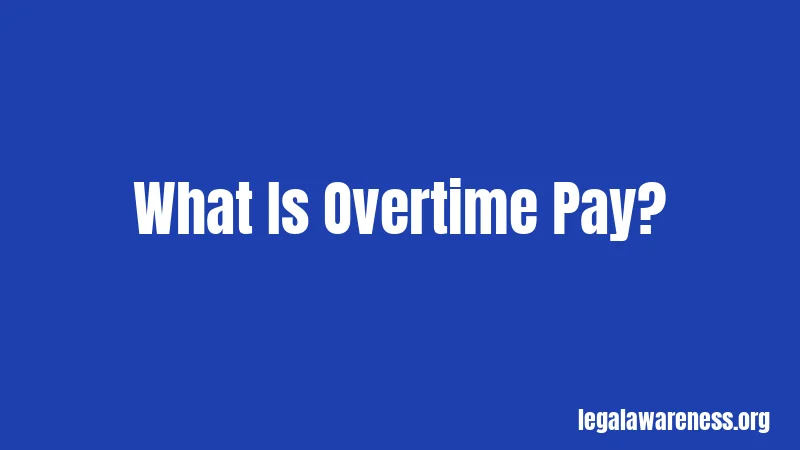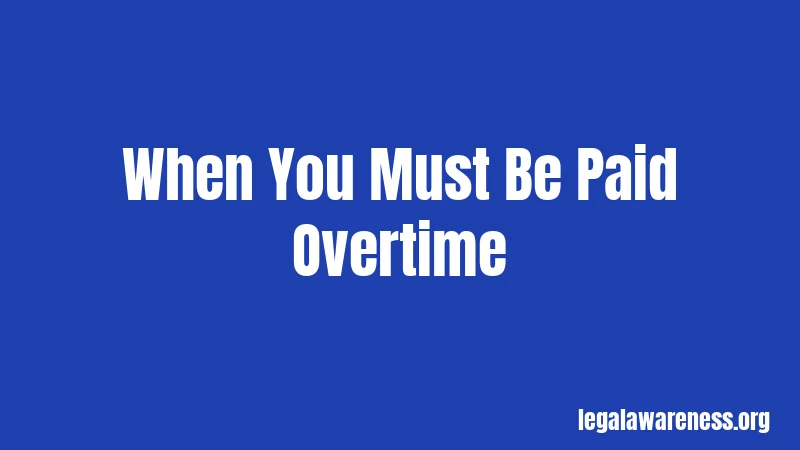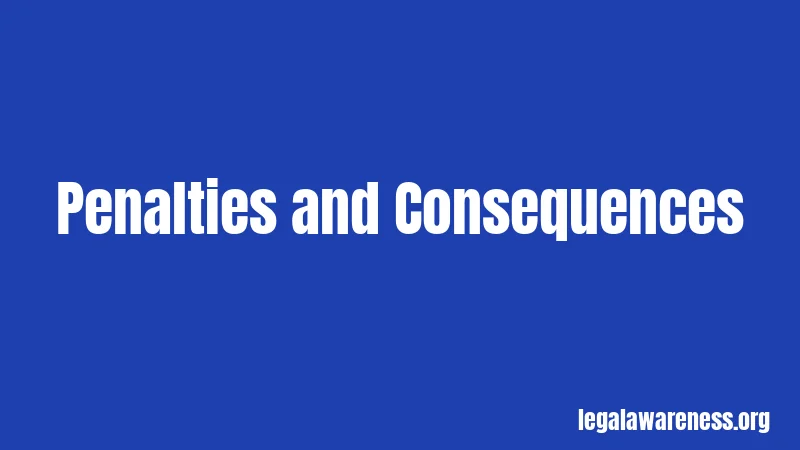Overtime Laws in Missouri (2026): Your Complete Rights Guide
Most people have no idea how overtime actually works. Seriously. But in Missouri, overtime rules are strict, and they protect you in major ways. Let’s break down exactly what you need to know about getting paid for extra work.
You spend a lot of time at your job. When you work extra hours, you deserve fair pay for that effort. That’s what overtime laws are all about. They make sure you get paid more when you work beyond the standard schedule.
What Is Overtime Pay?

Okay, pause. This is important. Overtime pay is the extra money you earn when you work more than a certain number of hours per week. Right now, here’s where things get interesting.
In Missouri, overtime follows federal rules. Those rules say you must be paid time and a half (1.5 times your regular pay) for any hours over 40 per week. Think of it like a bonus for your hard work. You work 41 hours? That extra hour pays at one and a half times your normal rate.
Missouri doesn’t have its own separate overtime law that’s different from federal rules. That means the federal Fair Labor Standards Act (FLSA) is what controls how overtime works in your state. Pretty straightforward.
Basic Overtime Rules
How Overtime Is Calculated
Let’s say you normally make $20 per hour. Your overtime rate would be $30 per hour (that’s $20 times 1.5). Work 45 hours in a week? You’d get paid $20 for the first 40 hours. Then you’d get $30 for those five extra hours. Makes sense, right?
The key is looking at each week separately. Your employer counts hours from Sunday through Saturday (typically). If you work 42 hours one week and 38 hours the next, you only get overtime for that first week. The second week has no overtime because you didn’t hit 40 hours.
Here’s what trips people up: daily hours don’t trigger overtime in Missouri. You could work 12 hours in one day and not qualify for overtime if you don’t hit 40 in the week. Only the weekly total matters under federal law.
Who Must Get Overtime Pay
Not everyone gets overtime. That’s honestly one of the most important things to understand. Your job category matters a lot here.
Most workers are entitled to overtime. These are non-exempt employees. You work hourly? You’re probably entitled to overtime. You work for wages instead of salary? You likely qualify. Honestly, this is the part most people miss.
Some workers don’t qualify. These are exempt employees. Usually, this includes managers, certain professionals, and some administrative staff. Your job title doesn’t determine this though. What you actually do on the job is what counts.
Wondering if this applies to you? The basic test is whether your job is primarily administrative, professional, or supervisory in nature. If you spend most of your time doing hands-on work rather than managing or making decisions, you’re probably non-exempt. You deserve overtime protection.
When You Must Be Paid Overtime

Regular Work Hours
Your employer can require you to work overtime. They can schedule you for 50 hours a week if business needs it. You don’t have a choice about working those extra hours (usually).
What you do have control over is getting paid correctly for those hours. You must receive overtime pay for any hours over 40 per week. That’s non-negotiable in Missouri.
Some employers try to get around this. They might say “salary means no overtime.” That’s false. Some salaried workers still qualify for overtime. It depends on your duties and how much you earn, not just your pay method.
Calculating Your Overtime Rate
Your overtime rate is based on your regular rate of pay. This includes more than just your base hourly wage. Bonuses, commissions, and shift differentials can count too.
Here’s where it gets interesting. If you earn commission, your employer has to figure your regular rate correctly. Then they calculate overtime from that rate. This can get complicated with commission-based jobs.
The basic formula is simple though. Take your total regular pay for the week (including all types of pay). Divide by hours worked. Multiply by 1.5 for your overtime rate. That’s what you should earn for each overtime hour.
Compensatory Time Off
Your employer can’t give you time off instead of overtime pay. You work overtime? You get paid in cash. Not with extra days off later. That’s a common mistake employers make.
The only exception is government employers. Public agencies can offer comp time instead of overtime pay under certain conditions. If you work for the state or a city, different rules might apply. Check with your HR department to be sure.
Recent Changes and Updates
Overtime rules haven’t changed dramatically in Missouri recently. The federal law that applies here has been stable. That said, enforcement has been active.
The Department of Labor has been cracking down on wage theft. Employers who don’t pay overtime face serious consequences. If you haven’t been paid overtime you earned, you might be able to recover back pay plus additional damages.
One thing changed slightly with wage calculations. If your job involves multiple types of work at different rates, calculating overtime gets trickier. Your employer should be using your blended rate. If they’re not, that’s a problem.
Stay with me here. Missouri hasn’t created new overtime rules that are stricter than federal law. That means you’re protected by federal minimums. Your employer can’t pay you less than those federal standards.
Penalties and Consequences

What Happens to Employers Who Violate Overtime Laws
Sound complicated? It’s actually straightforward. Employers who don’t pay overtime face real penalties. This isn’t something they can ignore.
Think of it like a traffic ticket, but more serious. First, they have to pay you all the overtime wages you’re owed. Then they have to pay an equal amount as damages. That doubles what they owe you.
You could get back pay for overtime not paid over several years. If your employer earns $50,000 in improper savings from unpaid overtime, you could recover $100,000. That’s serious money.
The company also faces attorney fees if you sue and win. They pay your lawyer’s costs. Plus they might face government investigations. Not a good situation for any business.
Your Rights as an Employee
You have the right to accurate overtime pay. That’s non-negotiable under Missouri and federal law. Your employer can’t take this away.
You also have the right to speak up about wage problems. Your employer can’t punish you for reporting unpaid overtime. They can’t fire you, cut your hours, or reduce your pay as retaliation. That’s illegal.
You have the right to keep records of hours worked. Write down your start and end times. Keep this information safe. If there’s ever a dispute, you’ll have proof of what you worked.
Special Circumstances and Exceptions
Jobs That Don’t Get Overtime
Some workers genuinely don’t qualify for overtime. Understanding these exceptions matters if you’re one of them.
Executive employees don’t get overtime. That means true managers with real supervisory duties. You have to actually manage people, not just work shifts. Your salary has to meet federal minimums too (currently over $35,500 per year as of 2025).
Professional employees exempt from overtime include doctors, lawyers, teachers, and engineers. These jobs require advanced training and education. Your main work has to be professional in nature, not just routine tasks.
Administrative employees can be exempt too. But this is narrow. You have to make decisions about how the business runs. You can’t just process paperwork or follow procedures created by others.
There’s also a computer employee exception. If you’re a programmer or IT professional earning above $48,000 annually, you might be exempt. Your job has to involve systems design or development though, not just basic tech support.
Outside Salespeople
Salespeople who work outside the office might not get overtime. But this is limited. You have to spend most of your time making sales calls outside the workplace. If you’re in an office most of the time, you still qualify for overtime.
Commission-based sales positions are tricky. You might still be non-exempt even if you earn commission. Your job duties matter more than your pay method.
Tipped Employees
Workers who receive tips have special rules. Your base wage can be lower than minimum wage if you earn tips. But overtime is calculated on your regular rate including tips.
If tips don’t bring you to minimum wage, your employer has to make up the difference. This applies to overtime calculations too. You can’t be shorted on overtime because your tips were low one week.
Government and Non-profit Employees
Government employers in Missouri have slightly different rules. Public agencies sometimes can use compensatory time instead of overtime pay. Check your employee handbook.
Non-profit organizations still have to follow federal overtime law. They can’t avoid overtime pay just because they’re non-profit. The same rules apply.
How to Track Your Hours and Calculate Overtime
Keep Detailed Records
Write down when you arrive at work and when you leave. Do this every single day. Include your actual job duties for each shift. This might seem excessive, but it protects you.
Use your phone if you want. Text yourself your hours. Take a picture of the time clock. Save emails confirming your schedule. The more documentation you have, the better.
Don’t rely on your employer’s records alone. If there’s ever a dispute, you want your own proof. Honestly, this is something everyone should do, not just if you’re worried about problems.
Calculate Your Own Numbers
Take your gross pay for the week (before taxes). Divide by total hours worked. That’s your regular rate. Multiply by 1.5 to get your overtime rate.
Then count how many hours over 40 you worked. Multiply that number by your overtime rate. That’s what you should be paid for overtime hours.
Compare this to your paycheck. Does it match? If not, you’ve found a problem worth investigating.
What to Do If Your Hours Are Wrong
Talk to your manager first. Sometimes it’s a simple mistake. Your timecard might not have been submitted correctly. These things happen.
If your manager can’t fix it, go to HR. Keep it friendly but firm. Document the conversation. Ask for the mistake to be corrected in your next paycheck.
If they won’t fix it, consider contacting a wage and hour attorney. Many offer free consultations. You might have a case worth pursuing. You’re not required to let wage theft continue.
How to Report Wage and Hour Violations
Contact the Department of Labor
The U.S. Department of Labor takes wage violations seriously. You can file a complaint if your employer isn’t paying overtime correctly. This is free and confidential.
Go to the Wage and Hour Division website. You can file online or by phone. They’ll investigate your claim. Your employer won’t know who reported them if you request confidentiality.
Missouri also has its own Labor and Industrial Relations Division. You can file a state complaint too. Having both a federal and state complaint might strengthen your case.
When to Hire an Attorney
You don’t need a lawyer immediately. But if your employer won’t fix the problem, you should consider one. Many wage and hour attorneys work on contingency. That means they get paid from your settlement, not from you upfront.
Most initial consultations are free. A lawyer can tell you if you have a strong case. They’ll explain your options and what you might recover.
Special Situations
Salary Changes and Overtime
If your salary changes, your overtime rate changes too. A raise means higher overtime pay. That’s how it should work, and that’s how it actually works.
If you get demoted to a lower salary, your overtime rate goes down. But you still must get overtime if you’re still non-exempt. Your status doesn’t change just because your pay did.
Multiple Jobs
Work two jobs? Overtime rules apply to each job separately. Your employer at job A only looks at hours at job A. They don’t care about your hours at job B.
You could work 30 hours at job A and 30 hours at job B. Neither employer owes you overtime. But if you work 45 hours at job A alone? Overtime kicks in at job A.
On-Call and Shift-Swap Situations
On-call time might count as work time. If you have to stay near your phone waiting for work, it counts. If you’re free to do whatever you want and rarely get called, it might not count.
Shift swaps are fine if you’re agreeing to them. Swapping a 12-hour shift for two 6-hour shifts doesn’t create overtime if the total is under 40 hours. The weekly total is what matters.
Training and Meetings
Training hours usually count as work hours for overtime purposes. Even if it’s before or after your normal shift. Meetings count too. You’re working, so it counts toward your 40-hour threshold.
Voluntary training that’s not required might be different. But if your employer expects you to attend, it counts. Include these hours in your calculations.
Frequently Asked Questions
Can my employer force me to work overtime? Yes, they can require you to work overtime if you’re non-exempt. But they must pay you overtime rates for those hours. You can’t be forced to work overtime without proper compensation.
Do I have to work on weekends or holidays? Your employer can require weekend or holiday work. But again, overtime rules still apply. Hours over 40 per week must be paid at overtime rates, even on holidays.
What if I’m misclassified as exempt when I should be non-exempt? This is common and illegal. If your job duties don’t actually match an exemption, you’re entitled to overtime. You might be able to recover back pay for years you weren’t paid.
Can my employer make me take time off instead of overtime pay? Not in the private sector. They must pay you in cash for overtime hours. Giving you extra days off doesn’t satisfy the law (except for government employers under specific conditions).
What’s the time limit for claiming unpaid overtime? Generally, you have three years to file a claim (or six years under certain conditions). If you think you haven’t been paid correctly, don’t wait too long to report it.
Does Missouri have higher overtime requirements than federal law? No. Missouri follows federal overtime law. There are no state-specific rules that require higher overtime pay. You’re protected by federal minimums.
What if my paycheck doesn’t show overtime pay? That’s a problem worth addressing immediately. Your paycheck stub should clearly show overtime hours and overtime pay. Ask your employer to explain the difference.
Can I waive my right to overtime pay? No. You cannot sign away your right to overtime. Any agreement to work without overtime pay is unenforceable. The law protects you regardless of what you agree to.
Final Thoughts
You now understand the basics of overtime law in Missouri. Most employers pay correctly. They know the rules and follow them. But some don’t, and knowing your rights protects you.
Keep track of your hours. Know your regular rate. Understand what overtime you should earn. If something doesn’t match up, speak up. You’re not being difficult. You’re protecting your paycheck.
Stay informed, stay safe, and when in doubt, look it up or ask a lawyer. Your hard work deserves fair compensation. That’s what overtime laws are designed to ensure.
References
Fair Labor Standards Act (FLSA) – U.S. Department of Labor
Wage and Hour Division – Official Guidance
Missouri Department of Labor and Industrial Relations
